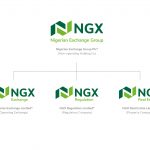Personal wellbeing index decline by 0.6 points in Q2
Personal wellbeing index decline by 0.6 points in Q2
 The Portfolio of Indices report released by NOIPolls Limited for Q2, 2016 has revealed that the NOIPolls Personal Well-Being Index (PWBI), which assesses how Nigerians feel about their lives, declined by 0.6-points to stand at 63.9-points. This infers a decline in the satisfaction of Nigerians with their well-being.
The Portfolio of Indices report released by NOIPolls Limited for Q2, 2016 has revealed that the NOIPolls Personal Well-Being Index (PWBI), which assesses how Nigerians feel about their lives, declined by 0.6-points to stand at 63.9-points. This infers a decline in the satisfaction of Nigerians with their well-being.
A detailed analysis of the individual indicators that make-up the PWBI revealed that while Nigerians were still very much satisfied with their religion (89.2-points) and Social Interaction in their society (78.4-points), Nigerians showed further dissatisfaction with their Standard of living (48.3-points) and Personal economic situation (38.9-points), even as these indices experienced the highest decrease of 2-points each in Q2, 2016. This decline may be an effect of recent reports of massive layoffs of workers as several companies are trying to cut costs so as to remain in business.
Also, the Consumer Confidence Index (CCI) further decreased by 3.5-points to stand at 56.4-points in Q2, 2016 when compared with the result (59.9-points) obtained from Q1, 2016. The CCI depicts how the purchasing power of Nigerians affects the general economy of the Nation. Therefore the decrease recorded in the CCI in Q2, 2016 revealed that there is a reduction in consumer spending hence the reduction in revenue generation in the economy. News reports revealed that some state governments have been experiencing difficulties in paying salaries and had to seek for a bail out contributing to the perceived reduction in consumer spending in such states and in the country at large.
In February 2014, NOIPolls Limited introduced its portfolio of indices; the NOIPolls Personal Well-Being Index (PWBI), the NOIPolls Consumer Confidence Index (CCI) and the NOIPolls Eagle 30 Business Confidence Index (EBCI). The NOIPolls Personal Well-Being Index measures factors impacting on the lives of everyday Nigerians; thereby producing a complete view of the individual’s personal well-being. The NOIPolls Consumer Confidence Index provides consumer assessments of the economic situation and their intentions and expectations for the future. The NOIPolls Eagle 30 Business Confidence Index measures business leaders’ perceptions and expectations about the Nigerian business environment using the top 30 companies in the country.
Nigerian businesses, financial and government agencies largely depend on their perceptions and micro assessment of consumers’ expectations in making decisions. At best, they draw conclusions on the business environment based on information from their immediate surroundings while the minorities conduct surveys that are time and money consuming. However, the introduction of these indices provides indicators that will ensure stakeholders can detect and respond to changes in consumer behavior, the economy and the business environment in Nigeria.
This report presents the Q2, 2016 results for the NOIPolls Personal Well-Being Index (PWBI) and NOIPolls Consumer Confidence Index (CCI).
The NOIPolls Personal Well-Being Index (PWBI) contains seven items of satisfaction, each one corresponding to the different aspects of life. In Q2 2016, the NOIPOlls Personal Well-Being Index (PWBI) experienced a further decline of 0.6-points to stand at 63.9-points. The Economic Index and the Standard of living index experienced the greatest decline of 2-points each in Q2, 2016. This is indicative that Nigerians were not contented with their well-being.
Additionally, the sub-components of the indices that make up the PWBI shows that Nigerians were pleased in terms of Physical Health (76-points), Social Interaction (78.4-points), and Religion (89.2-points). Consequently, the results from Achievement in Life (51.7-points) and Personal Security (65.6-points) revealed that Nigerians were somewhat neutral in terms of those indices, while Nigerians were not satisfied with their Personal Economic Situation (38.9-points) and Standard of Living (48.3-points). This implies that the Economic Index has remained the lowest ranked indicator in Q1 and Q2, 2016.
The data trend also shows that the Health, Social and Religion Indices experienced an increase of 0.2-points, 0.3-point and 1.9-points respectively in Q2, 2016.
In-depth analysis of the monthly findings revealed that the NOIPolls PWBI was highest in March at 65.9-points and lowest in April at 61. 95-points when compared to other months in the first half of 2016.
The NOIPolls Consumer Confidence Index in Q2, 2016 decreased by 3.5-points to stand at 56.4-points. This decrease indicates a reduction in the satisfaction of Nigerians with their current situation.
There are two sub-components of the NOIPolls Consumer Confidence index; the Present Situation Index (PSI) and Expectation Index (EI). The PSI decreased by 7.7-points to stand at 20.9-points, while the Expectation Index (EI) also dipped by 0.2-point to stand at 82.9-points in Q2, 2016. The decrease expressed by these two independent variables indicated that the buying power of Nigerians has further weakened when compared to Q1, 2016.
Trend analysis revealed that the overall CCI decreased by 3.5-points in Q2, 2016 when compared to Q1, 2016.
In conclusion, current findings have shown that the NOIPolls PWBI declined by 0.6-points to stand at 63.9-points whereas, the individual indicators that make-up the PWBI revealed that the Standard of living and Economic indices had the highest decrease of 2-points each in Q2, 2016. Furthermore, the NOIPolls Consumer Confidence Index decreased by 3.5-points to stand at 59.9-points in Q2, 2016 which indicates that consumer’s ability to spend declined with respect to the falling economy of the nation. Therefore, it is imperative for the government to intensify its efforts at diversifying the economy and creating an enabling environment for investors. Financial experts have asserted that countries that experience robust GDP growth rates over time will attract investments, given that the private sector considers the GDP of a country when making investment decision.





Leave a Reply